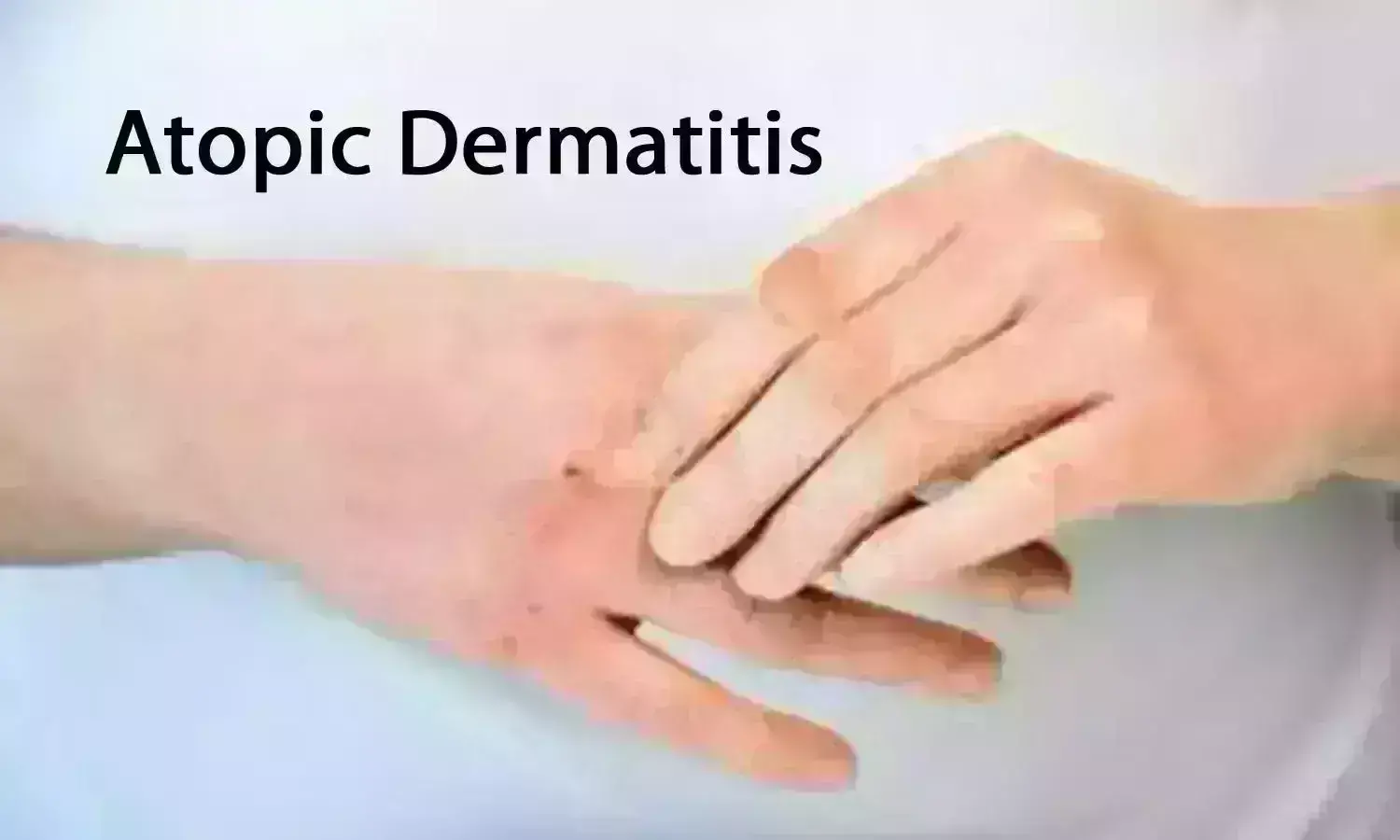- Home
- Medical news & Guidelines
- Anesthesiology
- Cardiology and CTVS
- Critical Care
- Dentistry
- Dermatology
- Diabetes and Endocrinology
- ENT
- Gastroenterology
- Medicine
- Nephrology
- Neurology
- Obstretics-Gynaecology
- Oncology
- Ophthalmology
- Orthopaedics
- Pediatrics-Neonatology
- Psychiatry
- Pulmonology
- Radiology
- Surgery
- Urology
- Laboratory Medicine
- Diet
- Nursing
- Paramedical
- Physiotherapy
- Health news
- Fact Check
- Bone Health Fact Check
- Brain Health Fact Check
- Cancer Related Fact Check
- Child Care Fact Check
- Dental and oral health fact check
- Diabetes and metabolic health fact check
- Diet and Nutrition Fact Check
- Eye and ENT Care Fact Check
- Fitness fact check
- Gut health fact check
- Heart health fact check
- Kidney health fact check
- Medical education fact check
- Men's health fact check
- Respiratory fact check
- Skin and hair care fact check
- Vaccine and Immunization fact check
- Women's health fact check
- AYUSH
- State News
- Andaman and Nicobar Islands
- Andhra Pradesh
- Arunachal Pradesh
- Assam
- Bihar
- Chandigarh
- Chattisgarh
- Dadra and Nagar Haveli
- Daman and Diu
- Delhi
- Goa
- Gujarat
- Haryana
- Himachal Pradesh
- Jammu & Kashmir
- Jharkhand
- Karnataka
- Kerala
- Ladakh
- Lakshadweep
- Madhya Pradesh
- Maharashtra
- Manipur
- Meghalaya
- Mizoram
- Nagaland
- Odisha
- Puducherry
- Punjab
- Rajasthan
- Sikkim
- Tamil Nadu
- Telangana
- Tripura
- Uttar Pradesh
- Uttrakhand
- West Bengal
- Medical Education
- Industry
Upadacitinib Shows Long-Term Success in the Treatment of Atopic Dermatitis, finds study

A recent study published in the Dermatology and Therapy journal confirmed the effectiveness and safety of upadacitinib, a Janus kinase (JAK) inhibitor, for treating moderate-to-severe atopic dermatitis (AD) in patients aged 12 years and older. This research was conducted over a 96-week period and demonstrated positive outcomes, including significant improvements in skin condition, reduced itching, and enhanced quality of life for patients.
The retrospective study analyzed data from 36 patients treated with upadacitinib between April 2022 and September 2024. The progress of these patients were tracked using various clinical and patient-reported outcome measures such as the Eczema Area Severity Index (EASI), Investigator Global Assessment (IGA), Scoring Atopic Dermatitis (SCORAD), Dermatology Life Quality Index (DLQI), and the Worst Pruritus Numerical Scale Score (WP-NRS). All drug-related adverse events were documented throughout the study.
After just 4 weeks of treatment, the mean EASI score dropped from 29.97 to 3.72. By this point, 83.3% of patients achieved at least a 75% improvement (EASI75), 52.8% reached EASI90, and 19.4% saw complete clearance (EASI100). Also, the DLQI score, a measure of quality of life, improved from 20.78 to 2.92, while pruritus scores decreased significantly from 7.78 to 1.31.
Further improvements were observed at week 16, with the mean EASI score dropping to just 0.75. By then, 96.4% of patients had achieved EASI75 or EASI90. At the 48-week mark, 100% of patients had achieved EASI75, while 93.8% and 81.3% reached EASI90 and EASI100, respectively. Quality of life measures continued to improve, with the mean DLQI reduced to 0.81 which indicated minimal to no life impact from AD.
Importantly, all 9 patients who completed the 72- and 96-week evaluations had clear skin and reported no pruritus which highlighting the long-term efficacy of upadacitinib. 6 patients (16.7%) experienced adverse events, with only 4 discontinuing treatment. Also, none of the discontinuations were due to the inefficacy of the drug, which illuminates the medication’s effectiveness and tolerability. Overall, these findings highlight the potential of upadacitinib as a long-term solution for managing moderate-to-severe AD in patients seeking sustained relief from the often debilitating symptoms of the condition.
Source:
Gregoriou, S., Koumprentziotis, I.-A., Kleidona, I. A., Bakakis, M., Hatzidimitriou, E., Douvali, T., Tsiogka, A., Mastraftsi, S., Vaiopoulos, A., & Stratigos, A. (2025). Successful achievement of demanding outcomes in upadacitinib-treated atopic dermatitis patients: A real-world, 96-week single-centre study. Dermatology and Therapy. https://doi.org/10.1007/s13555-024-01334-6
Neuroscience Masters graduate
Jacinthlyn Sylvia, a Neuroscience Master's graduate from Chennai has worked extensively in deciphering the neurobiology of cognition and motor control in aging. She also has spread-out exposure to Neurosurgery from her Bachelor’s. She is currently involved in active Neuro-Oncology research. She is an upcoming neuroscientist with a fiery passion for writing. Her news cover at Medical Dialogues feature recent discoveries and updates from the healthcare and biomedical research fields. She can be reached at editorial@medicaldialogues.in
Dr Kamal Kant Kohli-MBBS, DTCD- a chest specialist with more than 30 years of practice and a flair for writing clinical articles, Dr Kamal Kant Kohli joined Medical Dialogues as a Chief Editor of Medical News. Besides writing articles, as an editor, he proofreads and verifies all the medical content published on Medical Dialogues including those coming from journals, studies,medical conferences,guidelines etc. Email: drkohli@medicaldialogues.in. Contact no. 011-43720751


